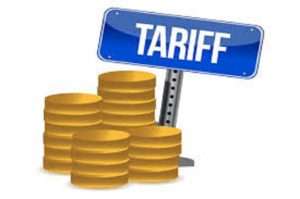[Ilya Somin] Challenge Trump's Tariffs Under the Nondelegation and Major Questions Doctrines
The Volokh Conspiracy 2025-02-02
 (NA)
(NA) Yesterday, Donald Trump imposed 25% tariffs on Canadian and Mexican imports, and 10% on those from China. These actions will inflict immense costs on the US economy, raise prices for many goods, and poison relations with two of our closest allies and trading partners, thereby weakening the US and strengthening our enemies. They are also unlikely to do much to stem the flow of fentanyl across US borders or address illegal migration - the ostensible excuses for these actions. Fortunately, there may be a way to successfully challenge these immensely harmful actions in court. Plaintiffs should file cases based on the nondelegation and major questions doctrines. The latter, especially, has been bolstered by recent Supreme Court decisions.
The Constitution gives Congress, not the executive, the power to regulate "commerce" with foreign nations. Trump claims the authority to impose these massive tariffs under the International Emergency Economic Powers Act of 1977 (IEEPA), a vague statute that gives the president the power to set trade restrictions in situations where there is "any unusual and extraordinary threat, which has its source in whole or substantial part outside the United States, to the national security, foreign policy, or economy of the United States, if the President declares a national emergency with respect to such threat."
Trump has indeed declared a national emergency at the border. But there is nothing "extraordinary" or "unusual" about either illegal migration or cross-border fentanyl smuggling. To the contrary, these phenomena are natural and longstanding consequences of severe immigration restrictions and the War on Drugs, which predictably create large black markets, and have done so for decades. Most fentanyl smuggling is actually done by US citizens crossing through legal ports of entry, which Canada and Mexico can't do much about. Moreover, illegal border crossings were actually at a low level when Trump came into office.
The unbounded nature of the administration's claim to power here is underscored by Trump's statements that there are no concessions Canada or Mexico could make to get him to lift the tariffs. That implies they aren't really linked to anything having to do with any emergency; rather, the invocation of the IEEPA is just a pretext to impose a policy Trump likes.
Under Trump's logic, "extraordinary" or "unusual" circumstances justifying starting a massive trade war can be declared to exist at virtually any time. This interpretation of the IEEPA runs roughshod over constitutional limitations on delegation of legislative power to the executive. For decades, to be sure, the Supreme Court has taken a very permissive approach to nondelegation, upholding broad delegations so long as they are based on an "intelligible principle." But, in recent years, beginning with the 2019 Gundy case, several conservative Supreme Court justices have expressed interest in tightening up nondelegation. The administration's claim to virtually limitless executive discretion to impose tariffs might be a good opportunity to do just that. Such flagrant abuse by a right-wing president might even lead one or more liberal justices to loosen their traditional skepticism of nondelegation doctrine, and be willing to give it some teeth.
A claim to such sweeping authority might fail even under the "intelligible principle" framework. If an "emergency" and an "extraordinary" or "unusual" threat exists anytime the executive says so, there is no real constraint here, intelligible or otherwise.
More promising than the nondelegation argument is the possibility of attacking Trump's tariffs under the "major questions" doctrine, which requires Congress to "speak clearly" when authorizing the executive to make "decisions of vast 'economic and political significance.'" If the statute is ambiguous, courts must presume that Congress didn't give the agency the power the executive claims. In recent years, the Supreme Court has relied on MQD to strike down a number of sweeping assertions of authority by the Biden administration, such as its attempt to forgive over $400 billion in student loans, and the establishment of a nationwide eviction moratorium (first begun under Trump). The imposition of massive tariffs on our two largest trading partners is pretty obviously a decision with "vast economic and political significance," one likely to cost the public even more than Biden's loan forgiveness plan would have. And, as in the student loan and eviction moratorium cases, the statutes under which the administration claims authority are far from clear in indicating it has such sweeping power. Furthermore, some of the conservative justices might welcome an opportunity to show that MQD isn't just a tool for the political right.
I don't argue that either a nondelegation or an MQD claim is sure to succeed. But the arguments are strong, particularly on MQD. Importers and others seeking to challenge Trump's awful actions would do well to try both. Making both simultaneously would also have the advantage of making the MQD argument (which is not constitutional in nature, thereby allowing Congress to potentially give the executive sweeping power by enacting a more clear statute) seem relatively moderate by comparison.
As is often the case, litigation and political action aren't mutually exclusive. At the margin, courts may be more willing to strike down Trump's tariffs if they are unpopular. Survey data indicates large majorities oppose tariffs if reminded they increase prices. Opponents would do well to emphasize that point at every turn - even as they also battle the tariffs in court.
The post Challenge Trump's Tariffs Under the Nondelegation and Major Questions Doctrines appeared first on Reason.com.